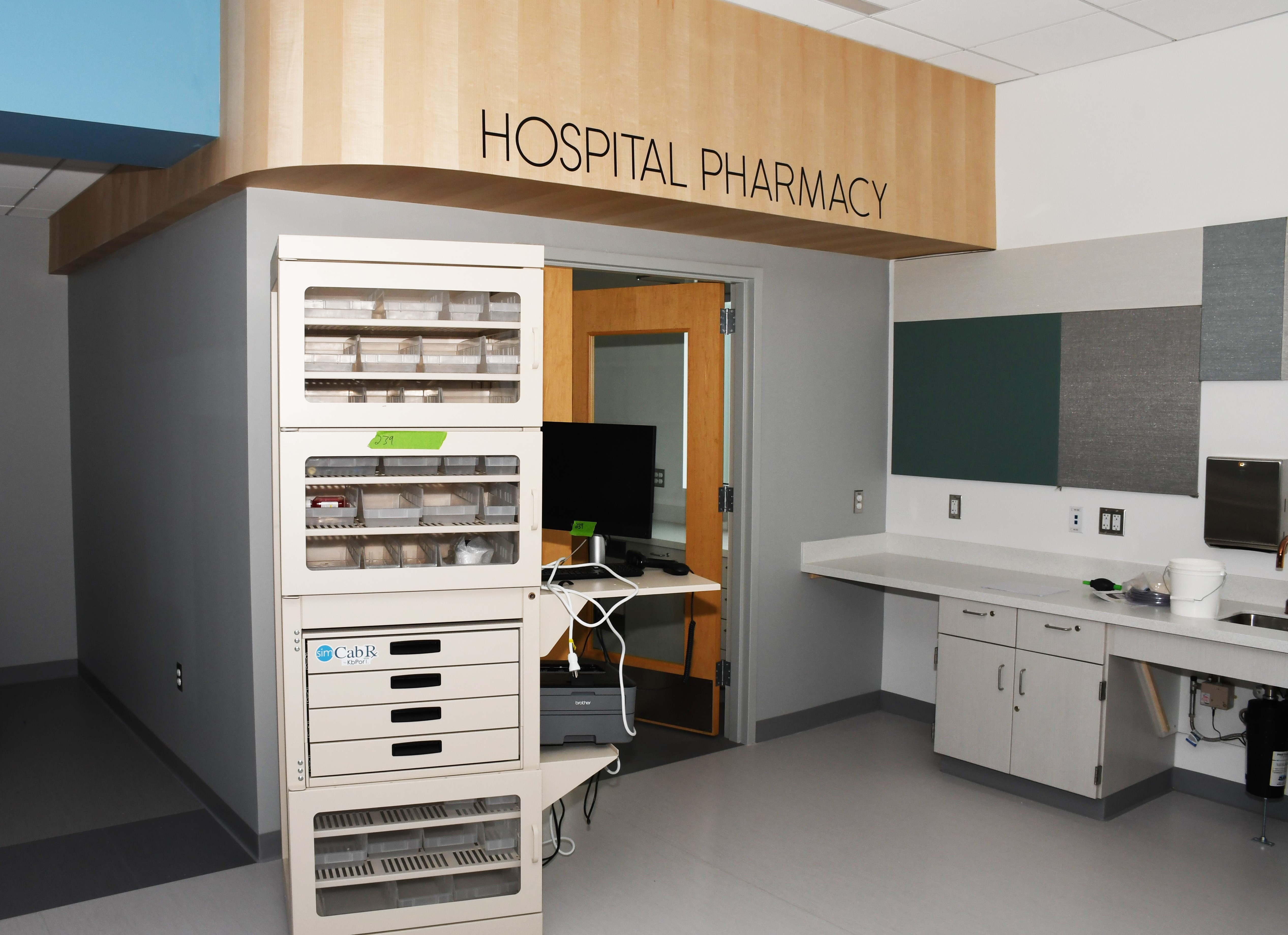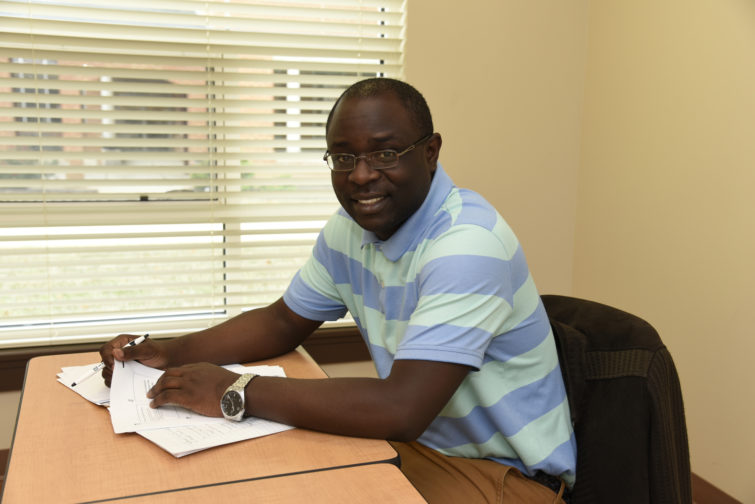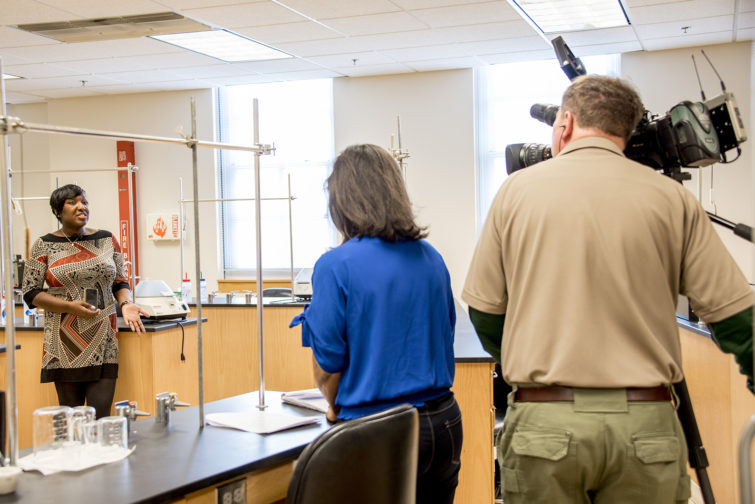CSM Fills Prescription for Well-Trained Pharmacy Workforce

“I started at CSM knowing that I wanted to end up in a pharmacy program, and CSM prepared me very well for my next steps.”

The College of Southern Maryland’s (CSM) Pharmacy Technician Certificate Program has received national accreditation, giving students the ability to jumpstart their career and keep it moving forward. It is news that couldn’t have come at a better time as nationwide walkouts by retail pharmacy employees this fall highlight a looming crisis in the field: There are more expectations being placed on pharmacists and not enough of them in critical positions.
CSM is the only college-based pharmacy technician program in the state of Maryland to have received entry-level accreditation, and the only program in the state with an advanced level accreditation. From the Pharmacy Technician Certificate Programgets students to work quickly, to transfer agreements that provide a clear path to a doctorate in the pharmacy field, CSM provides a variety of pathways for students to begin a pharmacy career and bolster the struggling pharmacy workforce. And the college has a strong track record: 100 percent of graduates have passed their Maryland Pharmacy Technician Examination and gone on to find work in the field.
“Building pathways for economic prosperity begins with not only understanding our labor market, but even more, understanding the needs and the opportunities that exist within our region,” said CSM President Dr. Yolanda Wilson at a recent community convening at the La Plata Campus with business, government, military and nonprofit leaders and influencers from Southern Maryland to discuss how community colleges are more than learning institutions – they are regional economic engines.
The Credentials to Enter a Growing Field
“Accreditation is an indication of the quality of a program,” explained CSM Program Coordinator Sharon Baker. “Although some workplaces offer on the job training, employers know that graduates from accredited institutions meet this high level of national standards and criteria. Employers prefer that employees have come from an accredited program.”
Accreditation is provided by the Pharmacy Technician Accreditation Commission, a collaboration between American Society of Health-System Pharmacists and the Accreditation Council for Pharmacy Education. The work to achieve accreditation was a four-year process for CSM that involved meeting dozens of standards.
The Pharmacy Technician lab at CSM’s Center for Health Sciences at the Regional Hughesville Campus was specifically designed with accreditation in mind. The lab features model retail and hospital pharmacies with simulated medications, cash registers, and even lockboxes so that students enter the workforce prepared for every aspect of their new roles.
The program leaves students well prepared and allows students to enter the workforce quickly. Although the program runs for five semesters from start to finish, students receive a basic-level certification after their first year, at which point they are qualified to work at retail pharmacies. Additional semesters confer an advanced-level certification, which is required to work in hospital settings,
Baker said that pharmacy technicians are in high demand, and the field is expected to expand as the population grows, chronic diseases become more common, and pharmacy technicians take on more roles, such as administering vaccinations. The U.S. Bureau of Labor statistics expects the field to grow by six percent this year.
“There’s always been a high demand in hospitals, but now you are seeing more techs assisting in the everyday workflow of the pharmacy,” she said.
 The Pharmacy Technician Program was a gateway to success for Dr. David Sebulime ’20, who followed a path through CSM’s Pharmacy Technician Program all the way to his doctorate in pharmacy. After receiving his certification, he worked as a pharmacy technician while earning his associate degree, and he never looked back. This spring, he received his Pharm.D. from the Lake Erie College of Osteopathic Medicine. He is currently completing a residency in clinical pharmacy at Aspirus Wausau Hospital in Wisconsin.
The Pharmacy Technician Program was a gateway to success for Dr. David Sebulime ’20, who followed a path through CSM’s Pharmacy Technician Program all the way to his doctorate in pharmacy. After receiving his certification, he worked as a pharmacy technician while earning his associate degree, and he never looked back. This spring, he received his Pharm.D. from the Lake Erie College of Osteopathic Medicine. He is currently completing a residency in clinical pharmacy at Aspirus Wausau Hospital in Wisconsin.
Sebulime, pictured right, said that he received valuable support at CSM, from the opportunity to practice in the field to advisors who helped him tailor his class selection to his transfer institution, and even a scholarship from Educational Systems Federal Credit Union.
“I started at CSM knowing that I wanted to end up in a pharmacy program, and CSM prepared me very well for my next steps,” he said. “Dreams can be achieved with the support of the right people, putting in the hard work, and trusting in God.”
The Momentum to Get from Start to Finish
CSM has two transfer agreements with four-year institutions that can guide students, like Sebulime, through a pre-professional health associate degree all the way to their doctorate in pharmacology.
The PATH program, a new partnership established with the University of Maryland Eastern Shore (UMES) that went into effect this year, gives students the support they need to finish a doctorate in five years
Under the partnership, students will complete their associate degree in pre-professional health at CSM before moving onto UMES, where they will complete three more years of coursework, eventually earning a Pharm.D.
Students apply to the program before beginning coursework at CSM and will have access to support from both CSM and UMES while they move through the program, including advising, invitations to events and a cohort of classmates to lean on. UMES guarantees admission to at least three CSM students in the program each year.
CSM also has a transfer agreement for pharmacy students with Notre Dame of Maryland University through the 2+4 Pharmacy Articulation Agreement, which confers a Doctor of Pharmacy after two years at CSM and four at the university.
CSM alumna Dr. Syria Wesley took advantage of the Notre Dame program and a National Science  Foundation’s (NSF) Scholarships in Science, Technology, Engineering and Mathematics (S-STEM) grant to earn her doctorate in pharmacy, and credits CSM with starting her down the path to her degree.
Foundation’s (NSF) Scholarships in Science, Technology, Engineering and Mathematics (S-STEM) grant to earn her doctorate in pharmacy, and credits CSM with starting her down the path to her degree.
“I come from a family where you graduated from high school and you basically went to work for the government or worked at the post office and that’s just what you did,” Wesley told ABC/WJLA Channel 7 Education Reporter Kellye Lynn in an interview. “I am the first person in my family to ever graduate from college, let alone achieve my doctorate degree.”
“There is a support system at CSM that was so beneficial and makes us close-knit here,” she continued. “That is the benefit of attending a community college.”
 my.CSMD
my.CSMD